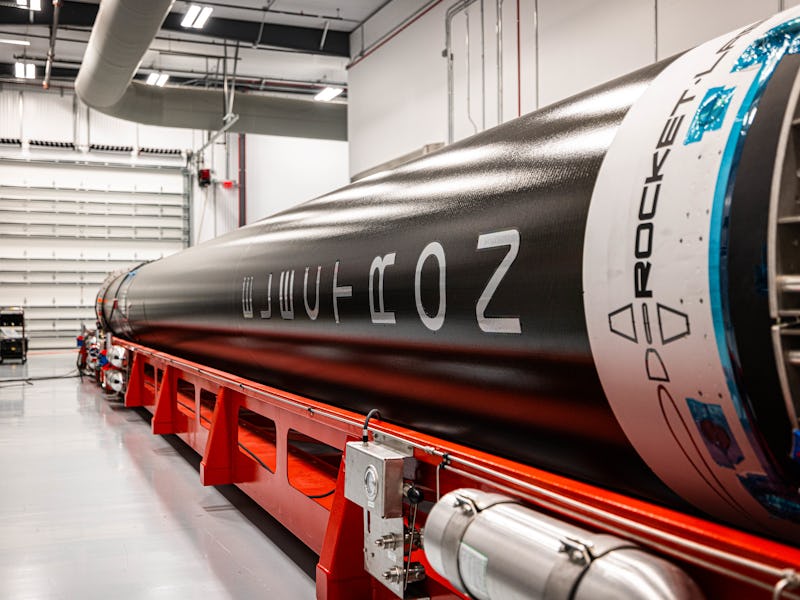Rocket Lab’s first U.S. launch: Mission details and how to watch
“Virginia is for Launch Lovers” will make Rocket Lab history.

Rocket Lab’s reusable Electron rocket will blast off in January from Wallops Island, Virginia, carrying three satellites that can sniff out the geographic origin of radio frequencies around the world. This marks the company’s first launch on United States soil.
The “Virginia is for Launch Lovers” mission was initially slated to begin on December 7 but was pushed back multiple times to January 23 (with back-up dates extending through early February). When Electron finally takes off, it will kick off a series of three satellite launches for HawkEye 360, a geospatial analytics company.
Here’s what you need to know ahead of the historic flight:
Rocket Lab will launch radio satellites from Virginia with its reusable Electron rocket.
What is Rocket Lab?
Rocket Lab is a space manufacturer and launch service provider that was founded in 2006 by New Zealand entrepreneur Peter Beck and has its current headquarters in Long Beach, California. It calls itself an “end-to-end” company and aims to furnish nearly every step of space travel, from launch services to satellite components and spacecraft.
The company broke into the space industry by providing small satellite launches, but it ultimately has the lofty goal of reaching Venus (in contrast to Elon Musk’s Mars ambitions).
For now, Rocket Lab says it’s partnering with the U.S. government for sensitive missions, such as launching experimental military spacecraft and spy satellites. The company is also building Neutron, a larger and fully reusable rocket.
With two launch complexes located in New Zealand and Virginia, Rocket lab can now support over 130 launch opportunities each year, according to the company website.
Where and when will Rocket Lab launch the satellites?
Rocket Lab will soon mark its first launch from U.S. soil.
The Electron rocket will blast off with the satellites on January 23 from Virginia Space’s Mid-Atlantic Regional Spaceport within NASA’s Wallops Flight Facility. The rocket will blast from Launch Complex 2, which was developed for Electron missions serving government and commercial customers. This is Rocket Lab’s first mission to take off from Launch Complex 2.
You can watch a live stream here on the Rocket Lab website on January 23. The launch window will run between 6 p.m. to 8 p.m. EST (coverage begins about 40 minutes before the launch).
What are the satellites for?
The mission, dubbed “Virginia is for Launch Lovers,” will send HawkEye 360’s satellites to monitor radio frequencies around the globe and pinpoint their precise location. The satellites can collect data as frequently as every hour anywhere in the world, according to HawkEye 360.
HawkEye 360’s small satellites fly in a triangular formation in low-Earth orbit, where they detect signals and send the data to a cloud system on the ground. This information can be used to crack down on illegal fishing, GPS jamming, or other activities that emit radio frequencies.
Rocket Lab will launch three of HawkEye 360’s Cluster 6 satellites.
The upcoming lift-off will mark the first of three Rocket Lab launches for HawkEye 360. Between late 2022 and 2024, Rocket Lab will send 15 of HawkEye 360’s satellites to low-Earth orbit.
“With this mission, NASA is helping foster a growing low-Earth space economy,” the agency wrote on its website.
What vehicle will Rocket Lab use?
The company is deploying the 59-foot-tall Electron rocket, the world’s only reusable orbital-class small rocket. The vehicle’s shell is made up of an ultra-light carbon-composite material (about four times lighter than the steel shell on SpaceX’s Falcon 9) and can hold up to 660 pounds.
By capturing and reflying Electron’s first stage component, Rocket Lab says it can lower launch costs. Since it was first active in 2017, Rocket Lab has successfully sent up Electron up to space 29 times — the second most frequently launched rocket in the world, just behind Falcon 9.
This article was originally published on